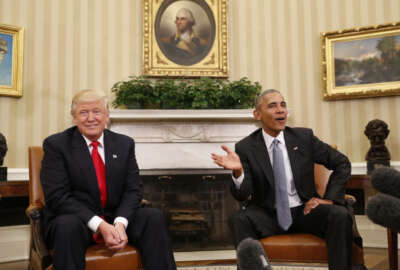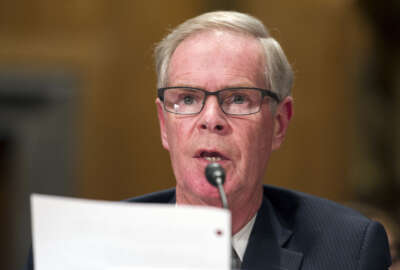
Transparency, inclusion keys to transition
Past and present agency officials offer suggestions on how to keep incoming feds and career leadership on the same page to ensure a smooth transition.
When it comes to a smooth presidential transition, agency leaders have some advice for feds and incoming rookies: follow through.
Chris Lu, the deputy secretary at the Labor Department and the executive director of the Obama-Biden Transition Project, said the biggest lesson he’s learned in both roles is to get to understand the career leadership.
“We need to be a little bit more collegial, that also holds within the executive branch as well,” Lu said during a book launch event at the Center for Cognitive Government, housed within IBM’s Center for the Business of Government in Washington, D.C.
“We spend a lot of time in the administration thinking about policy formulation, we don’t even think enough about policy implementation,” Lu said. “You could have the best press releases, the best-framed policy, but if you can’t get it across the finish line, it doesn’t count for much.”
At the same time, for those workers wondering whether or not to stay around and help the new faces with their policies, Lu said he’s been encouraging a continuity of effort.
“One of the messages I’ve been delivering as I’ve been going around the Department of Labor is to stick this out, give the new secretary, give the new president a chance,” Lu said. “Because the mission of the department still matters.”
Lu’s advice was part of an overarching discussion at the Center, where fellow agency officials past and present gathered for the book launch and to offer words of wisdom to the incoming administration and current workforce.
The book is the latest edition of Getting It Done: A Guide for Government Executives.
Included in the book are seven “to-dos” for an incoming administration. They are:
- Be careful in the time leading up to confirmation
- Learn how things work
- Act quickly
- Develop a vision and a focused agenda
- Assemble your leadership team
- Deliver results
- Manage your environment
Dave Mader, controller of the Office of Management and Budget, said it’s important to engage all stakeholders in the transition process, including Congress, interagency councils, inspectors general and even the media.
“If you ignore them, you’re going to ignore them at your peril,” Mader said of the stakeholders. “And you will not be successful in rolling out new policy or continuation of policy.”
Mader said looking at the role of interagency councils, the keys to driving policy across government are inclusion, transparency and “listening to people’s feedback.”
“Sometimes not understanding the complexity of implementation will actually derail that policy,” Mader said. “I think councils, at least for me in the things I’ve been engaged in, were critical in getting feedback. Sometimes I agreed with the feedback, sometimes I didn’t necessary agree, but getting that feedback at the right time is critical to driving successful implementation of policy.”
Kathy Stack, former adviser for evidence-based innovation at OMB, suggested leveraging opportunities by understanding the new leadership and where it’s coming from.
“First, take good things that are going on and rebrand them, tweak them, adjust them, show how well the other guys did this and it was really kind of not as good as it could be, but this can be your initiative if you do x, y and z,” Stack said. “They’re looking for quick wins. Lift up activities that have been under the radar that nobody’s taken credit for yet, that can be early successes out of the box.”
Asked for their final word of advice, the panels suggested setting priorities, finding common ground and engaging with the worst critics.
Copyright © 2025 Federal News Network. All rights reserved. This website is not intended for users located within the European Economic Area.





